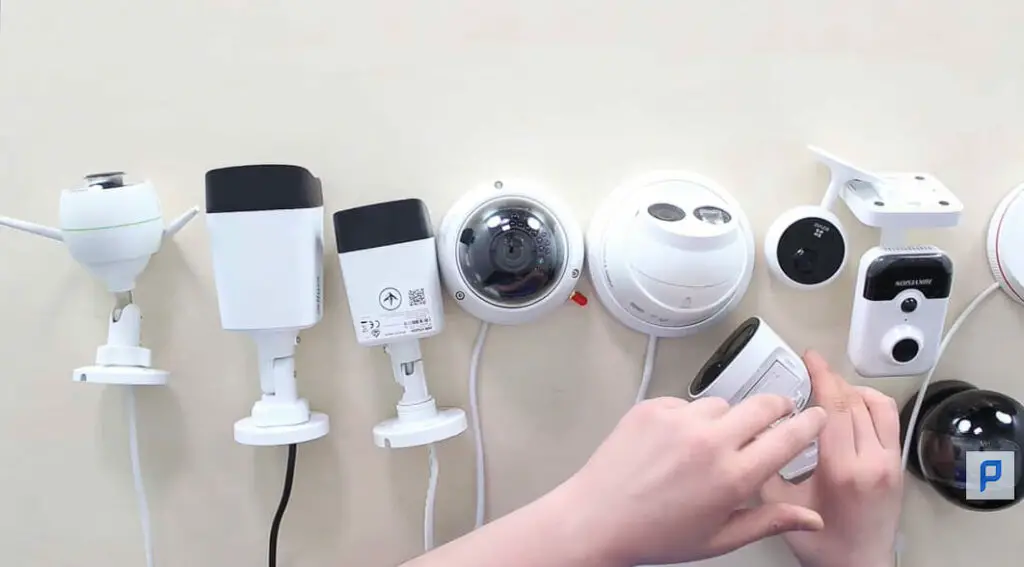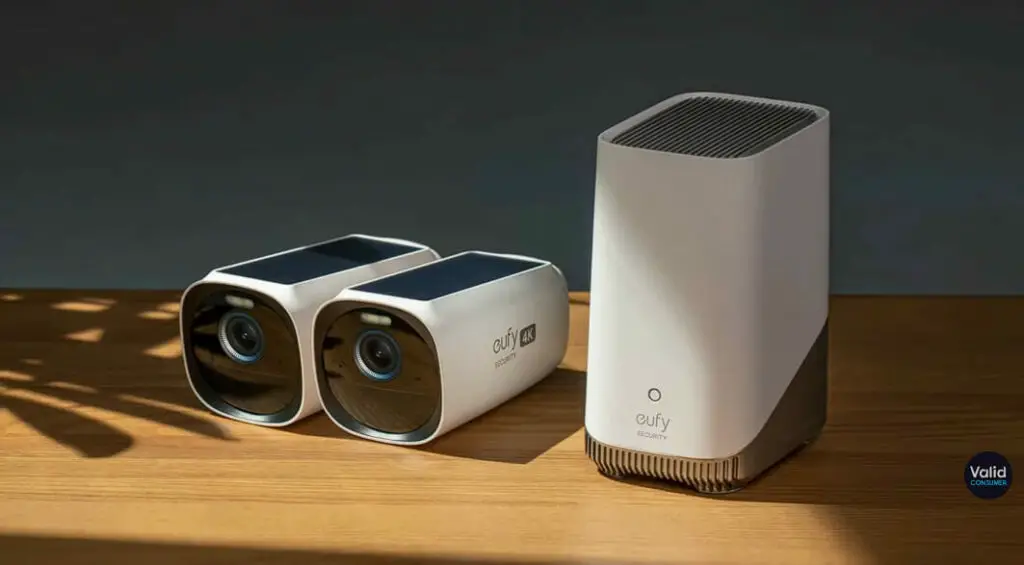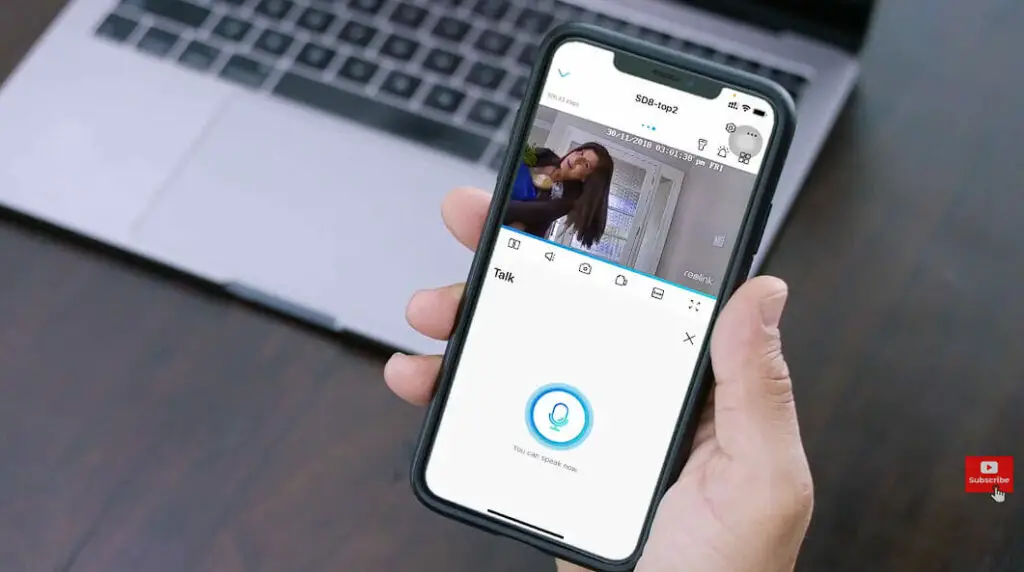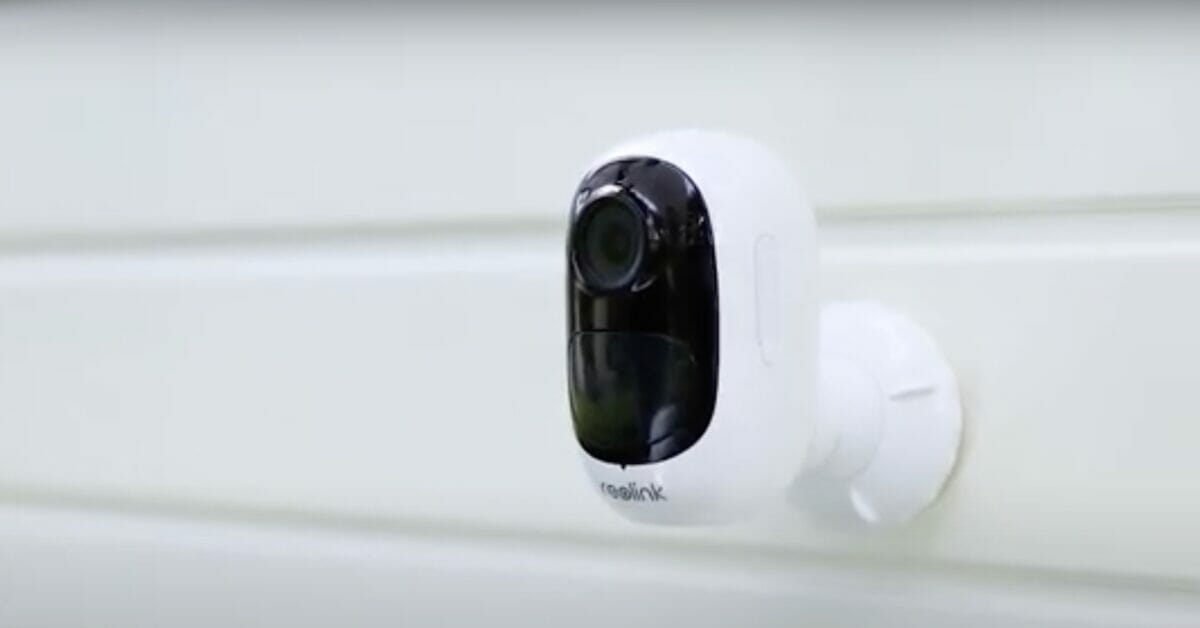Are you considering installing security cameras at home or in your business? If so, you may wonder whether they can record audio and video.
The answer is: it depends on the camera. Some security cameras have built-in microphones and can record audio and video footage. Other cameras may not have audio capabilities at all.
In this article, I’ll dive deeper; we’ll explore the benefits and drawbacks of cameras that capture video and audio and some potential legal concerns to remember.
Different Types of Security Cameras with Audio

When selecting a security camera, you can choose one with audio and video recording capabilities.
In choosing the best type of security camera for your needs, it’s essential to understand the various types of security cameras with available audio.
Here are some of the different types of security cameras that come equipped with audio recording and some information about how they work:
- Dome Cameras: Dome cameras are easily recognizable due to their circular design. While many believe they only record video, most dome cameras have audio recording abilities nowadays. These cameras can be mounted on the ceiling or wall and are well-suited to monitoring large spaces.
- Bullet Cameras: Bullet cameras are long and cylindrical, making them easy to spot. They’re frequently used for monitoring parking lots or outdoor spaces. They typically come with an attached microphone in addition to the camera.
- PTZ Cameras: PTZ stands for pan-tilt-zoom, and these cameras are well-suited to remote monitoring. They can be easily controlled remotely, and many have audio recording ability. These are frequently used in outdoor areas such as parking lots, entryways, or other locations where broad visibility is needed.
It’s essential to consider various factors such as field of view, resolution, and storage before purchasing a security camera, regardless of whether or not it comes with audio recording ability.
With this information, you can determine which type of security camera will work best for your needs and budget.
Five Examples of Security Cameras with Audio
| Camera Model | Audio Quality | Wireless Connectivity | Storage Capacity | Special Features | Approximate Price Range |
|---|---|---|---|---|---|
| Arlo Pro 4 | High | Yes | Large (with cloud subscription) | Advanced motion detection, color night vision | $500 – $600 |
| Nest Cam IQ Outdoor | Medium | Yes | Medium (with cloud subscription) | Facial recognition, automatic zooming | $300 – $400 |
| Ring Stick Up Cam Wired | Low | No | Small (with cloud subscription) | Two-way audio, siren | $100 – $200 |
| Wyze Cam v3 | Medium | No | Large (with microSD card) | Color night vision, time-lapse feature | $200 – $300 |
| EufyCam 2 Pro | High | Yes | Medium (with cloud subscription or home base) | Human detection, local and cloud storage | $400 – $500 |
So, for the most up-to-date and accurate details, double-check with the manufacturer or a trustworthy retailer before making your final buying decision.
Costs of Security Cameras with Audio

You can expect to pay a little more than you would for a traditional camera without audio capabilities.
That being said, the price range can vary widely depending on the make and model of the camera, as well as the type of audio features it offers. Ranging from $50 for a basic model to $600 or more for a high-end camera with advanced features. Remember that you may need to pay additional costs for installation, such as mounting hardware, wiring, and labor.
Here are a few factors that can influence the cost of a security camera with audio:
- Audio Quality: Cameras with higher-quality audio will generally be more expensive. If you need clear audio for surveillance purposes, you may want to invest in a camera with a built-in microphone or a separate audio recorder.
- Wireless Connectivity: Cameras that connect wirelessly to your home network or the cloud will usually be more expensive than those that rely on cables. However, they offer the advantage of remote access and control through a mobile app or web browser.
- Storage Capacity: Cameras with larger storage capacity will generally cost more than those with limited storage. If you need to record and store a lot of video footage, you may want to consider a camera with expandable storage or cloud-based storage options.
- Special Features: Some cameras have special features that can increase the price, such as advanced motion detection, face recognition, or night vision.
Ultimately, if you’re looking for a cost-effective solution for basic home security, a mid-range camera with decent audio quality may be sufficient.
On the other hand, if you need professional-grade surveillance for your business or a high-risk property, you may need to invest in a more expensive camera with advanced features.
Benefits of Security Cameras with Audio

So, I’ve spent countless hours researching and testing security cameras with and without audio. Based on my experience, I firmly believe that cameras with audio capabilities can provide several benefits that traditional cameras simply can’t.
Here’s why:
- Enhanced Security: Audio recordings can provide enhanced security by alerting you to crucial information that video alone cannot. For example, you may be able to identify a burglar by their voice or detect the sound of breaking glass from another room.
- Peace of Mind: Security cameras with audio can help you know that you can monitor everything happening and hear what’s being said when you’re away from home or the office.
- Cost-Effective: Unlike hiring a security guard or installing a full security system, cameras with audio are a relatively affordable option. They are suitable for residential and commercial use and can provide a higher return on investment over time.
- Useful Evidence: If an incident or crime occurs on your property, having audio recordings can provide valuable evidence for law enforcement. It can aid in investigations and help ensure potential suspects are brought to justice.
Consider investing in this type of security camera to enhance your levels of protection and security.
Privacy Concerns vs. Security Advantages of Audio Recording Cameras
While audio recording may seem useful for catching criminals and enhancing security measures, it also brings up privacy concerns.
Here are some privacy concerns and advantages you should be aware of when it comes to security cameras with audio:
| Concern/Advantage | Concern | Advantage |
|---|---|---|
| Invasion of Privacy | Cameras can deter potential criminals due to perceived increased surveillance. | Cameras can deter potential criminals due to perceived increased surveillance |
| Legal Issues | Some jurisdictions do not allow audio recording without explicit consent | Proper signage and notifications can ensure legal compliance while deterring potential criminals |
| Misuse of Recordings | Audio recordings can be misused if they fall into the wrong hands | Secure storage and proper access control measures can prevent misuse |
| Technical Difficulties | Audio recordings require more storage and can potentially slow down camera feeds | Technological advancements and efficient compression techniques can mitigate these issues |
Considering these advantages and concerns is important before implementing security cameras with audio.
As always, it’s recommended to familiarize yourself with the local laws regarding audio recording before deciding. Remember to ensure that you are complying with local laws and regulations.
References
Books:
- “CCTV Surveillance: Video Practices and Technology” by Herman Kruegle
- “Privacy in the Age of Big Data: Recognizing Threats, Defending Your Rights, and Protecting Your Family” by Theresa Payton and Theodore Claypoole
Websites:
- Techradar. https://www.techradar.com/
- PCMag. https://www.pcmag.com/
Video References
Pipl Systems
Reolink
Valid Consumer

